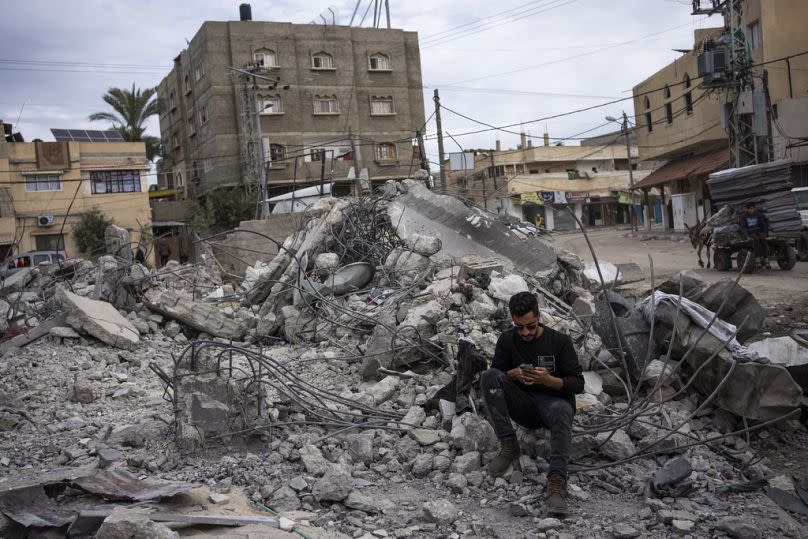Israel-Hamas ceasefire talks continue as Rafah ground assault looms
Israel is under increasing pressure from its allies not to go ahead with its planned ground offensive in Rafah, where over a million Palestinians are sheltering from war.
As concerns for Rafah's civilian population mount, negotiations for a ceasefire between Israel and Hamas are still underway in the Egyptian capital of Cairo.
Israeli media reported early on Wednesday that negotiators had returned from talks without making any concrete progress. However, subsequent reports said that the talks will be continuing at a lower level.
The discussions are said to be focused on the conditions for trading Israeli hostages for the release of Palestinian prisoners in Israel, with the main bone of contention being the number of Palestinians to be released per hostage returned.
The President of the Palestinian Authority, Mahmoud Abbas, urged Hamas to quickly agree on a truce deal on Wednesday to avoid "dire consequences", according to the official Palestinian news agency.
It comes as the Hamas-run health ministry in Gaza says at least 28,576 people have been killed and 68,291 wounded since the start of the conflict in October.
While Israel's military maintains its focus on Rafah, it said its troops are every day recovering weapons, grenades and combat documents belonging to Hamas militants.
However, Israel is now under heavier international pressure than at any point in the current conflict, with even core allies concerned about the threat the Rafah operation poses to hundreds of thousands of Gazans who were told to flee there for their safety.

A recent air raid on the area killed at least 74 Palestinians, according to local officials, offering a glimpse of what a full-blown ground advance might look like.
Warnings mount against Rafah offensive
French President Emmanuel Macron on Wednesday expressed his country's "firm opposition" to a possible ground offensive in Rafah to Israel's Prime Minister Benjamin Netanyahu, an Elysée read-out of a call between the two leaders stated.
Macron told Netanyahu the attack would result in a "humanitarian disaster of a new magnitude" and pose an "additional risk of regional escalation."
It follows similar sharp warnings from allies Australia, the UK and the US.
The UN's humanitarian chief Martin Griffiths also warned Tuesday that Israel's military operations in Rafah "could lead to a slaughter."
He said more than half of Gaza’s 2.3 million residents have fled to Rafah seeking safety from Israeli attacks and are "staring death in the face," with "little to eat, hardly any access to medical care, nowhere to sleep, nowhere safe to go."
Gazans, he said, are the victims of an Israeli assault "that is unparalleled in its intensity, brutality and scope."
Griffiths reiterated the UN's demands for an end to the war that has been raging in Gaza since Hamas' deadly attack on Israel on October 7.
While Israel admits Palestinian civilians are trying to survive in appalling conditions, it blames Hamas for bringing war to Gaza. The military claims that if it does mount a ground offensive in Rafah it will evacuate civilians, but so far, no plan has been provided.
Even as the fate of Rafah hangs in the balance, a refugee camp in central Gaza was reportedly bombed and reduced to rubble.
Israel strikes southern Lebanon
Israeli airstrikes struck southern Lebanon on Wednesday, after a rocket slammed into a northern Israeli town earlier in the day.
Four people were killed in Lebanon, including a Syrian woman and her two Lebanese children, and at least nine were wounded, according to Lebanese security officials and local media. The officials spoke on condition of anonymity in line with regulations.
The spokesperson of the Israeli Defense Forces (IDF) confirmed that fighter jets had targeted Hezbollah military targets.
Eight people were wounded in the earlier attack on the Israeli town of Safed. Hezbollah, the Lebanese militant group that backs Hamas, has not claimed responsibility for the attack.
Israel and Hezbollah have traded fire near the Israel-Lebanon border since the start of the conflict in October.


